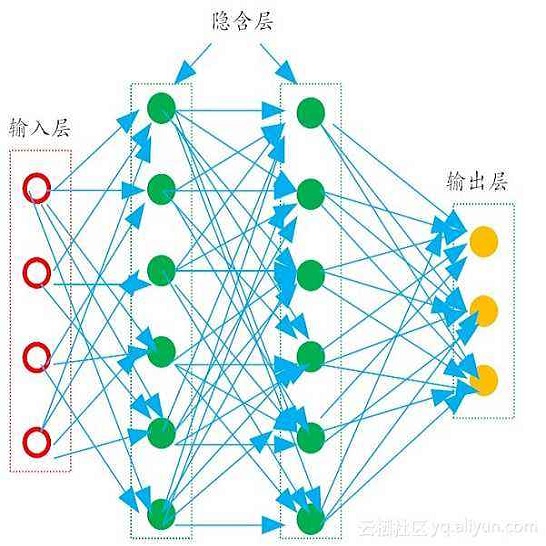Nowadays, computer scientists have shown the interest in the study of social insect's behaviour in neural networks area for solving different combinatorial and statistical problems. Chief among these is the Artificial Bee Colony (ABC) algorithm. This paper investigates the use of ABC algorithm that simulates the intelligent foraging behaviour of a honey bee swarm. Multilayer Perceptron (MLP) trained with the standard back propagation algorithm normally utilises computationally intensive training algorithms. One of the crucial problems with the backpropagation (BP) algorithm is that it can sometimes yield the networks with suboptimal weights because of the presence of many local optima in the solution space. To overcome ABC algorithm used in this work to train MLP learning the complex behaviour of earthquake time series data trained by BP, the performance of MLP-ABC is benchmarked against MLP training with the standard BP. The experimental result shows that MLP-ABC performance is better than MLP-BP for time series data.
翻译:目前,计算机科学家已表示有兴趣研究神经网络领域社会昆虫的行为,以解决不同的组合和统计问题,其中最主要的是人工蜜蜂殖民地算法(ABC),本文调查了ABC算法(ABC算法)的使用情况,该算法模拟蜂群的智能捕捉行为。受标准背传播算法培训的多层倍受体(MLP)通常使用计算密集的培训算法。反分析算法(BP)的一个关键问题是,由于解决方案空间中存在许多本地的optima,它有时能够产生低于最优的重量的网络。为了克服用于培训ABC算法的ABC算法(ABC)学习由BP培训的地震时间序列数据的复杂行为,MLP-ABC的性能与标准的BP标准比MLP-BP的性能要好。实验结果表明,MLP-ABC的性能在时间序列数据方面比MLP-BP好。



